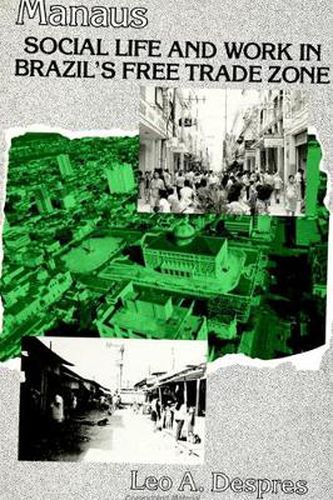Readings Newsletter
Become a Readings Member to make your shopping experience even easier.
Sign in or sign up for free!
You’re not far away from qualifying for FREE standard shipping within Australia
You’ve qualified for FREE standard shipping within Australia
The cart is loading…






Manaus, an urban-industrial center in the Amazon, serves in this book as a microcosmic case of dependent capitalist development in Latin America. With the creation of a Free Trade Zone and a strong program of fiscal incentives in 1967, the Brazilian government initiated a large-scale project designed to establish an industrial pole in Manaus. This book is an anthropological study of the impact of this type of development on the economic, social, and cultural life of working class families. This study underscores the work relationships between different economic sectors, the economy of households, the organization of domestic groups and, ultimately, the social engagement of working class families in the life of their neighborhoods, the city, and the larger Brazilian society. Despres examines the theoretical value of modernization, dependency, and modes of production approaches for understanding the social formation of working class populations. In discussing capitalist development in Brazil, the author grapples with the problems of urbanization, industrialization, and economic development in Latin America generally.
$9.00 standard shipping within Australia
FREE standard shipping within Australia for orders over $100.00
Express & International shipping calculated at checkout
Manaus, an urban-industrial center in the Amazon, serves in this book as a microcosmic case of dependent capitalist development in Latin America. With the creation of a Free Trade Zone and a strong program of fiscal incentives in 1967, the Brazilian government initiated a large-scale project designed to establish an industrial pole in Manaus. This book is an anthropological study of the impact of this type of development on the economic, social, and cultural life of working class families. This study underscores the work relationships between different economic sectors, the economy of households, the organization of domestic groups and, ultimately, the social engagement of working class families in the life of their neighborhoods, the city, and the larger Brazilian society. Despres examines the theoretical value of modernization, dependency, and modes of production approaches for understanding the social formation of working class populations. In discussing capitalist development in Brazil, the author grapples with the problems of urbanization, industrialization, and economic development in Latin America generally.